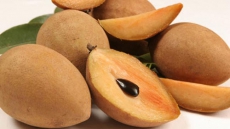Debunking a prevalent theory of Alzheimer's development, researchers have now found that it is not the amyloid-beta (A-beta) protein fragments but the tau tangle proteins which are the real culprits behind the disease.
Plaque made of beta-amyloid protein fragments and tangles formed from tau proteins are familiar hallmarks of disease in the brains of Alzheimer’s patients.
Tau protein spurs neuron death in disorders such as Alzheimer's disease, showed the findings that could explain why some people with plaque build-up in their brains do not have dementia.
"The common culprit is tau, so a drug that helps tau do its job may help protect against progression of these diseases," said Charbel Moussa, senior study investigator and assistant professor of neuroscience at the Georgetown University Medical Centre.
He found that nilotinib, a drug approved to treat cancer, can aid tau proteins function better.
"Nilotinib helps the neuron clear toxins but requires some functional tau," Moussa added.
Neuronal death happens when tau, found inside neurons, fails to function.
"When tau is abnormal, these proteins, which include A-beta, accumulate inside the neurons," Moussa said.
The experiments in animal models showed less plaque accumulating outside the cell when tau is functioning.
When tau was re-introduced into neurons that did not have it, plaque did not grow.
Malfunctioning tau can occur due to errant genes or through ageing.
The study appeared in the journal Molecular Neurodegeneration.





